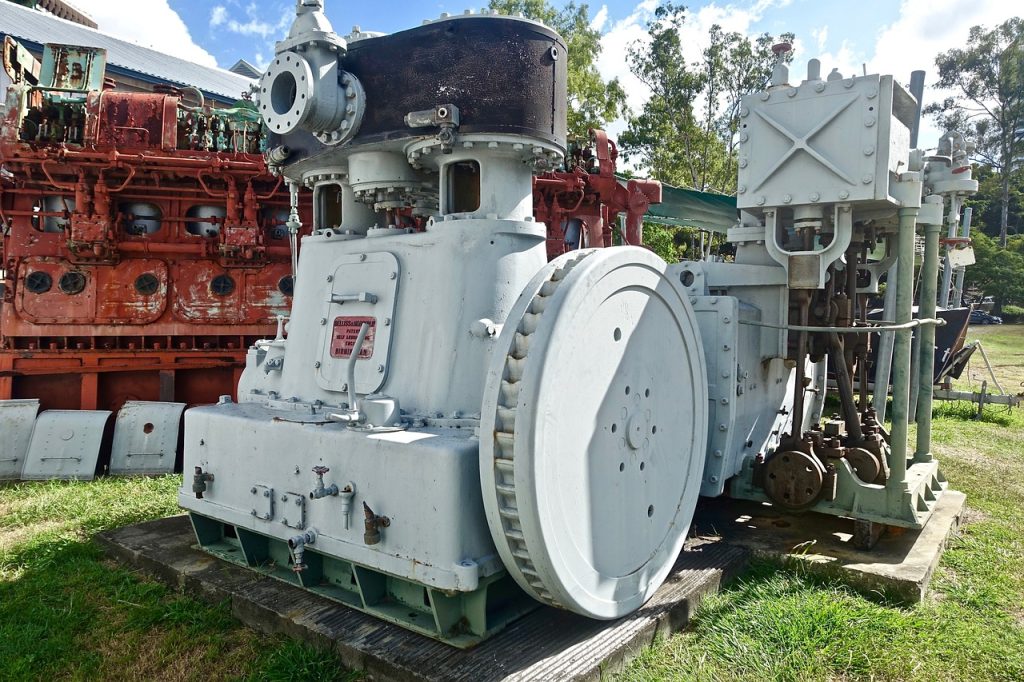Introduction:

In a world where electricity is a fundamental necessity for various aspects of daily life, ensuring a reliable and sustainable power supply is of paramount importance. While renewable energy sources such as solar and wind power have gained significant attention in recent years, diesel generators continue to play a vital role in meeting the power demands of industries, homes, and communities. This article explores the use of diesel generators as a sustainable power solution, focusing on their efficiency, environmental impact, and technological advancements.
Section 1: Understanding Diesel Generators
1.1 What is a Diesel Generator?
A diesel generator is a combination of a diesel engine and an electric generator that converts mechanical energy into electrical energy. It operates on the principles of internal combustion, where diesel fuel is burned to produce rotational motion, which is then converted into electrical energy through the generator.
1.2 Operational Efficiency
One of the primary reasons for the widespread use of diesel generators is their high operational efficiency. Diesel engines are known for their ability to convert a significant portion of the fuel's energy into useful work, resulting in higher fuel efficiency compared to other types of internal combustion engines. This efficiency translates into reduced fuel consumption and lower greenhouse gas emissions per unit of power generated.
1.3 Power Output and Scalability
Diesel generators are available in a wide range of sizes, making them suitable for various applications, from small residential backup power systems to large-scale industrial operations. The power output of diesel generators can range from a few kilowatts to several megawatts, ensuring that they can meet diverse power requirements.
Section 2: Environmental Impact of Diesel Generators
2.1 Emission Control Systems
While diesel generators are known for their efficiency, they have traditionally been associated with higher emissions compared to other power generation technologies. However, advancements in emission control systems have significantly reduced the environmental impact of diesel generators. Modern diesel engines are equipped with technologies such as catalytic converters, diesel particulate filters, and selective catalytic reduction systems, which effectively minimize harmful emissions.
2.2 Reduced Particulate Matter and NOx Emissions
Diesel particulate filters (DPFs) are designed to trap and remove particulate matter from the exhaust gases of diesel engines. These filters effectively reduce the emission of fine particles that can contribute to air pollution and respiratory health issues. Additionally, selective catalytic reduction (SCR) systems help to reduce nitrogen oxide (NOx) emissions, which are a major contributor to smog and environmental degradation.
2.3 Alternative Fuels and Biofuels
In recent years, there has been a growing emphasis on utilizing alternative fuels and biofuels to power diesel generators. Biofuels, derived from renewable sources such as vegetable oils or animal fats, can significantly reduce the carbon footprint of diesel generators. Additionally, the use of natural gas as a fuel source for diesel engines, known as dual-fuel technology, has gained popularity due to its lower emissions and cost-effectiveness.
Section 3: Advancements in Diesel Generator Technology
3.1 Hybrid Systems
To further enhance the sustainability of diesel generators, hybrid systems have emerged as a promising technological advancement. Hybrid diesel generators combine the use of traditional diesel engines with energy storage systems and renewable energy sources. This integration allows for better load management, reduced fuel consumption, and lower emissions by optimizing the use of stored energy and renewable sources whenever possible.
3.2 Smart Grid Integration
The integration of diesel generators into smart grid systems enables better energy management and distribution. Smart grid technologies allow for real-time monitoring of power demand, load balancing, and efficient utilization of available power sources. By seamlessly integrating diesel generators into the smart grid, their operation can be optimized to reduce fuel consumption, minimize emissions, and maximize overall system efficiency.
3.3 Remote Monitoring and Telematics
The advent of remote monitoring and telematics has revolutionized the operation and maintenance of diesel generators. With the help of advanced sensors, data analytics, and connectivity solutions, diesel generators can be remotely monitored for performance, fuel efficiency, and maintenance needs. This technology enables proactive maintenance, reduces downtime, and ensures optimal performance, ultimately contributing to the sustainability of diesel generator operations.
Section 4: Balancing Efficiency and Environmental Impact
4.1 Energy Efficiency Measures
To maximize the efficiency of diesel generators, several energy-saving measures can be implemented. These include load management strategies, optimizing generator size to match power demand, regular maintenance to ensure peak performance, and utilizing waste heat for other applications such as water heating or space heating. Implementing these measures can significantly reduce fuel consumption and emissions while maintaining reliable power supply.
4.2 Renewable Energy Integration
While diesel generators provide a reliable power source, their sustainability can be further enhanced by integrating renewable energy sources. By combining 30kw diesel generator for small-scale operations , wind turbines, or other renewable sources with diesel generators, the reliance on fossil fuels can be reduced, resulting in lower emissions and increased energy independence.
Conclusion:
Diesel generators continue to play a crucial role in providing sustainable power solutions for a wide range of applications. With advancements in technology, emission control systems, and the integration of renewable energy sources, diesel generators are becoming increasingly efficient and environmentally friendly. However, it is essential to strike a balance between efficiency and environmental impact by implementing energy-saving measures, utilizing alternative fuels, and embracing hybrid systems. By doing so, diesel generators can continue to support sustainable power generation while reducing their carbon footprint and contributing to a cleaner and greener future.
